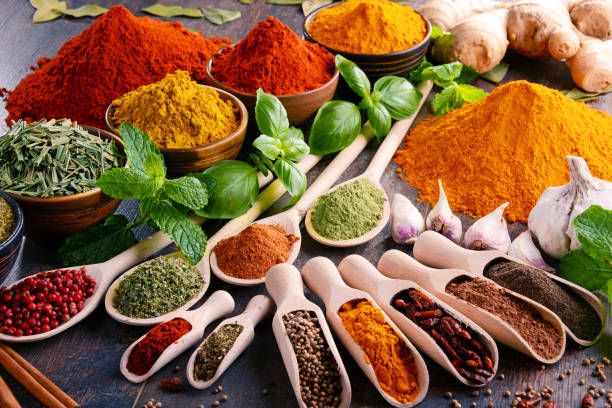The #1 Rated Blood Sugar Formula
The #1 Thing You Can Add to Every Meal to Help Lower Blood Pressure, According to Science

Spice up your Life
Hey '90s kids: Remember the Spice Girls lyric "spice up your life!"? Welp, it now has scientific evidence to be true—and a couple new studies prove that herbs and spices can help lower blood pressure, cholesterol and reduce your risk for certain chronic diseases such as type 2 diabetes.
Benefits of Herbs and Spices
Previous studies suggested that herbs and spices both offer anti-inflammatory and immune-supporting benefits, and suggest that everything from cilantro to cinnamon can lower risk for heart disease, diabetes and certain types of cancer. And two new findings presented at week's meeting of the American Society for Nutrition (ASN) add to the mounting evidence that it's a great idea to spice-spike your menu.
In one study discussed at the ASN meeting, scientists found that adding herbs and spices to meals helped to reduce blood pressure in individuals at risk for heart disease.
Research Findings
Kristina Petersen, Ph.D., an assistant research professor in the Cardiometabolic Nutrition Research Lab at Penn State College of Health and Human Development summarizes her team's results from that first study: "Our findings suggest that adding dried herbs and spices found in the spice aisle of the local supermarket to commonly made recipes has a beneficial effect on blood pressure, a major risk factor for heart disease," Petersen tells Healthline.
To determine this, Dr. Petersen and her colleagues tracked 71 American adults who fit criteria for obesity (a body mass index, or BMI, of 30 or higher) and had other risk factors of heart disease. They were told to eat their typical American diet, which is a macronutrient breakdown of 50 percent of calories from carbs, 17 percent from protein and 33 percent from fat (with 11 percent from saturated fat).
Every 4 weeks, the participants tweaked their meal plans a bit.
- Low spice: With 0.5 grams per day of herbs and spices
- Medium spice: With 3.3 grams per day of herbs and spices
- High spice: With 6.6 grams per day of herbs and spices
Effects of Spices and Herbs
While blood cholesterol and blood sugar levels remained fairly consistent as the individuals rotated through the three menus, those on the high-spice diet had significantly lower 24-hour blood pressure levels.
It remains important to eat a healthy diet, including lots of fruits, vegetables, whole grains, nuts and legumes," Petersen says.
Spice-Filled Supplement
In the other study presented at the same meeting, researchers determined that spice-filled supplements reduced cholesterol levels in participants with type 2 diabetes.
Expert Says
More research diving into the dose needed to produce a specific response are needed, and it's important to note that some herb and spice supplements—and supplements in general—can interact with certain medications or cause side effects. As with any new medicine, be sure to consult with your doctor before starting anything new.
Whether you and your doc decide to supplement or not, it certainly can't hurt to add more fresh herbs, dried herbs and spices to your recipes. Just be sure you're choosing options without added salt.
In a recent study , scientists focused on how food is seasoned and how that affects blood pressure. The research, published in The American Journal of Clinical Nutrition, reported that consuming herbs and spices lowered blood pressure, at least temporarily.
Benefits of Herbs and Spices to blood pressurecayenne pepper alternative to salt for blood pressurecure to high blood pressureeffect of Herbs and Spices for Blood Pressureherbs and blood pressureHerbs and spices for high blood pressurenatural way to lower blood pressurespices and blood pressurespices for blood pressure






